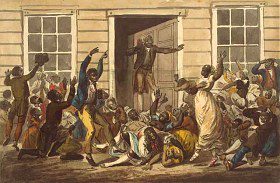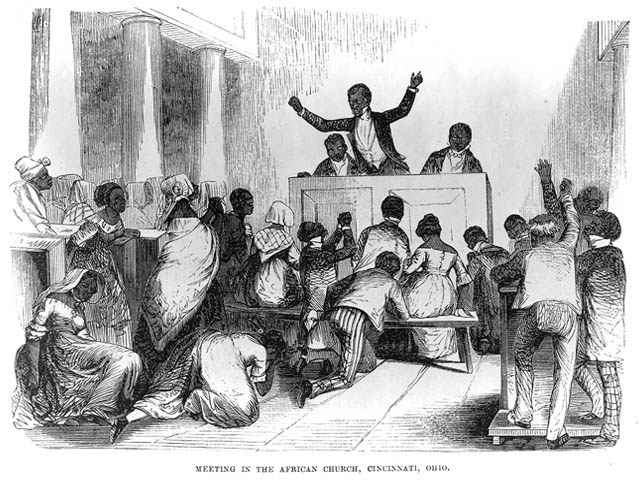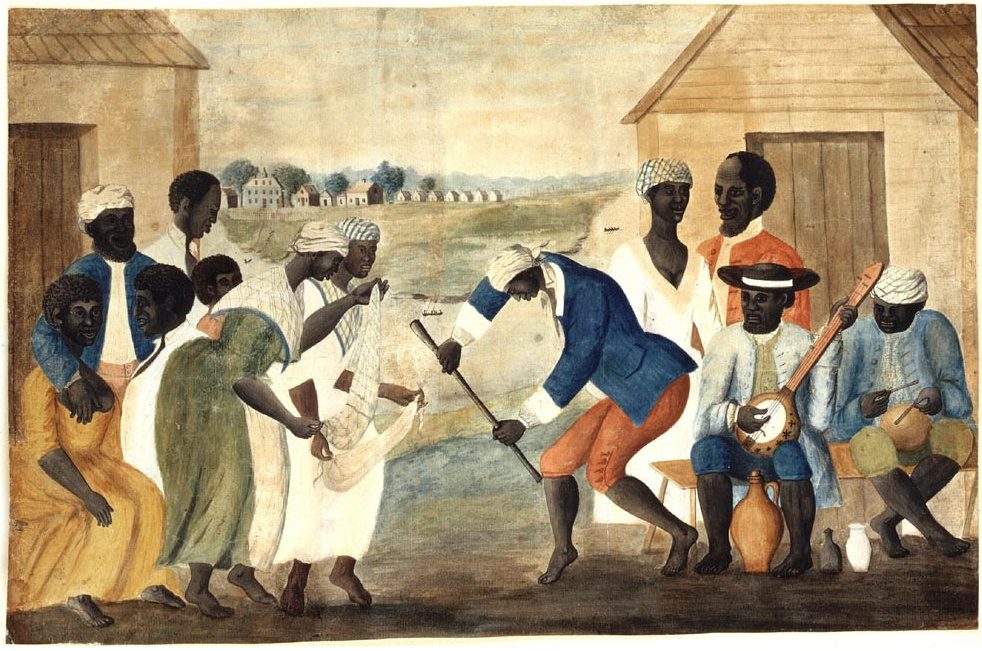The Legacy and Beauty in Spirituals
As an extension of folk music, negro sprituals were based upon Christian values and mental freedom. The Great Awakening, a period in which many slaves converted to Christianity, connected African American slaves through religion while disassembling language barriers in slave communities and maintaining their African identity. Symbolic interactionism, the role of symbols and language in interaction, defined African American spirituality. From a sociological standpoint, the invisible church, ring shout, call and response, etc. were all symbols within Negro Spirituals. Although, due to limited access to materials, slaves were bound to uphold their developed symbols within oral tradition. The symbolic nature of oral tradition provided a strong basis for the continuance of their faith. For example, the creation of the ‘invisible church’ risked the well-being of many, yet it was seen as essential to the spirit of most slaves. They were willing to risk their lives to practice Christianity because practicing was their right.
Harry T. Burleigh was extremely significant in the emergence of negro spirituals as he was the first person to arrange a solo performance with a piano. In 1894, a period in which many white churches forbode the performances of black artists, Burleigh was chosen as a soloist at St. George’s Episcopal Church in New York. He used the opportunity to expand the essence and aesthetic of negro spirituals by moving beyond a cappella performances and incorporating the pipe organ, acoustic guitar, and orchestra to solo performances. His song “Deep River” encorporates negro spiritual values while elevating its’ typical sound. His tradition of the instrumental addition has carried to future generations of spiritual sound. Burleigh’s musical passion illustrates the lack of limitation within genres. His visionary arrangements allowed for Paul Robeson, an All American football player, actor, and bass-baritone singer, to emerge and develop a platform illuminate negro spirituals as a form of resistance. Robeson was beloved by America before his career in music, excelling in the acting realm and academic career. Although, as he became more interested in negro spirituals, Robeson interpreted his platform as an opportunity for change and became an activist towards ending racism and oppression in the United States. His strength and determination allowed him to transform racist songs into depictions of activism. Robeson changed songs like “Old Man River” reflect to spiritual resistance. Consequently, he was blacklisted by White American society and banned for eight years from using his passport. Albeit, Robeson found his community within the African American church. His arrangements, performances, and activism were greatly admired and respected, and, as a result, his concert performances continued within the church.













